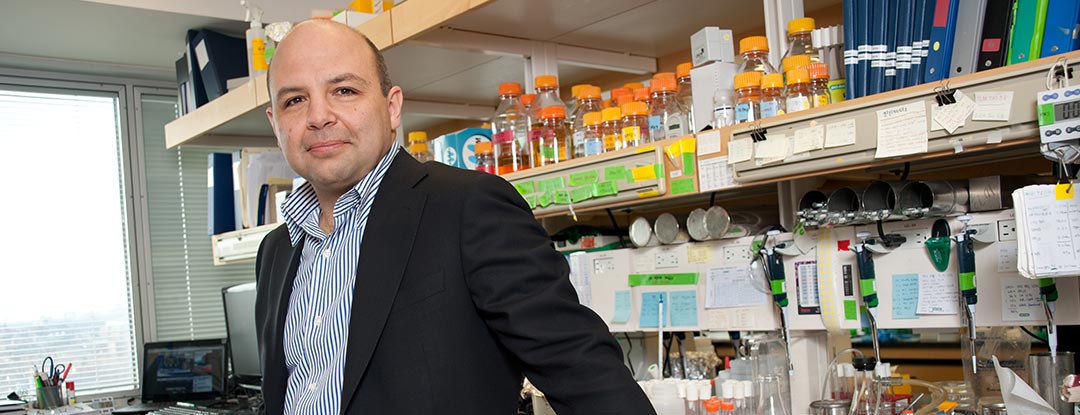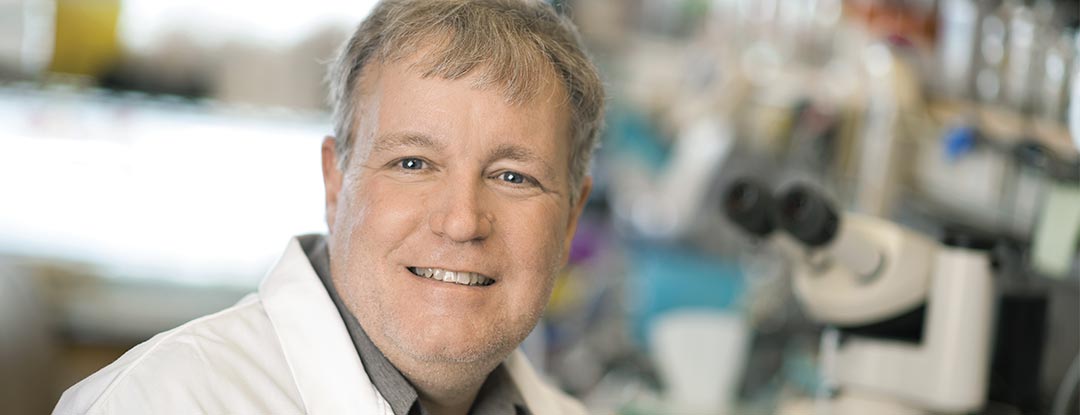
Annual Report
Report to the Community 2018/19

NEW DISCOVERY COULD MAKE STEM CELL TREATMENT SAFER
The field known as regenerative medicine holds exciting possibilities that could revolutionize the treatment of disease. Lab-grown transplant tissue, however, can pose risks. Because engineered cells are constantly dividing, they can also accumulate mutations that could lead to cancer. The same is true for tissue derived from stem cells-embryo-like cells that can turn into any other type of cell in the body. Dr. Andras Nagy has developed a remotely controlled “kill switch” for eliminating potentially dangerous cells. His research, published in 2018 in Nature, renews promise for the safe use of regenerative medicine to replace tissues and organs that have been damaged by disease.

PROLIFIC YEAR FOR LEADING CANCER RESEARCHER
Internationally recognized molecular genetics expert Dr. Daniel Durocher has had an exceptionally successful year, with three papers published in the leading scientific journal Nature. Dr. Durocher and his team made key discoveries about the mechanisms of DNA repair in cells, including what he terms the Shieldin complex. Whether DNA damage occurs through environmental exposure or normal cell division, each of our cells rely on a complex detection and repair system to maintain our genetic integrity. A critical set of proteins together form a molecular machine that actively shields broken DNA from further damage and helps coordinate its repair.

A MAMMALIAN DISCOVERY THAT MAY LEAD TO BETTER MANAGEMENT OF INFLAMMATORY BOWEL DISEASE
Renowned cancer researcher Dr. Jeff Wrana has discovered a new type of intestinal cell in mammals that may be associated with Inflammatory Bowel Disease (IBD), an umbrella term that includes Crohn’s disease and ulcerative colitis. The cell, previously only observed in animals that have the ability to regenerate body parts (such as newts and zebrafish), appears to play a central role in regenerating the damaged intestines of mammals. Dr. Wrana’s finding could help us understand what leads to development of IBD and other disease pathways. He was recently awarded the McLaughlin Medal by the Royal Society of Canada for his pivotal contributions to our understanding of biology, human diseases and their treatment.

CHARTING A NEW COURSE IN STROKE REHABILITATION FOR COMPLEX PATIENTS
Rehabilitation care after a stroke can be especially complex for patients with multiple medical conditions. Bridgepoint Active Healthcare researcher Dr. Michelle Nelson has published a paper that defines a research agenda to address these patients’ pressing needs, bringing together 43 researchers and clinicians for a two-day think tank. Through structured exercises, the participants helped set priority research questions to develop a greater understanding of complex patients and their needs; how to effectively manage these needs during stroke rehabilitation and the outcomes of high-quality care for complex rehabilitation patients. At the organization and health-care system level, this research agenda also defines questions to aid in decision making.

DR. LOU SIMINOVITCH, C.C.: FOUNDER OF CANADIAN GENETICS
At age 99, Dr. Lou Siminovitch remains one of the visionaries of scientific medicine in Canada. He played a fundamental role in the development of several outstanding research centres, and made important contributions in the fields of bacterial and animal virus genetics, human genetics and cancer research, publishing more than 200 papers. As the founding director of Mount Sinai’s Lunenfeld-Tanenbaum Research Institute, he attracted the best and brightest minds and built what continues to be one of the foremost centres of research excellence in the world. He has been made both an Officer and Companion of the Order of Canada, and has been inducted into the Canadian Medical Hall of Fame. “The better the science, the better the patient care,” says Dr. Siminovitch. “Supporting research and becoming known internationally ensures we get the best possible people.”
X